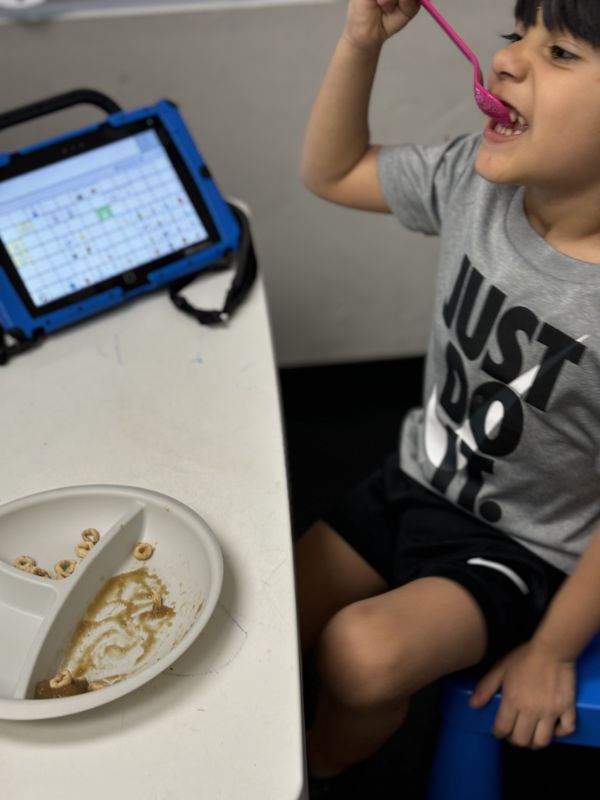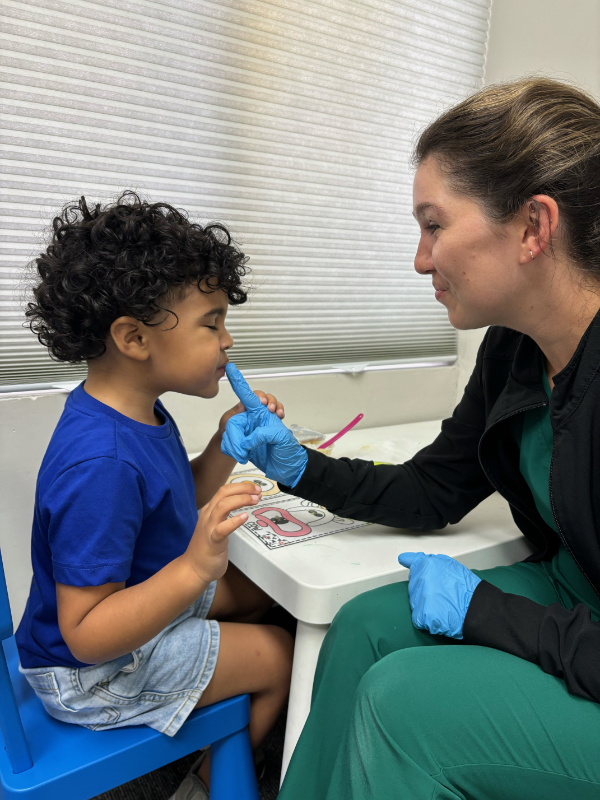Feeding Therapy
Understanding Picky Eating vs. Problem Feeding
Picky eating and problem feeding are distinct challenges in child nutrition. Picky eaters might avoid certain foods, like vegetables, but generally maintain a varied diet. Problem feeders, however, face more severe restrictions, often limiting themselves to just 2-20 types of food. These children may insist on specific food preparations and presentations, leading to mealtime anxiety for both child and parent.
While a problem feeder might appear fine on growth charts, their limited diet often lacks essential nutrients. It’s crucial to understand that problem feeding rarely stems from mere behavior. Usually, underlying factors such as gastrointestinal issues, structural oral problems, or oral motor difficulties are at play. Recognizing these root causes is the first step towards effective intervention and supporting your child’s nutritional health.

Messy Eating
Mealtime challenges can often signal underlying oral motor issues. If your child consistently takes more than 30 minutes or less than a minute to finish meals, this may indicate a problem. Other signs include difficulty keeping food in the mouth, needing food cut into unusually small pieces, or only drinking from specific cups.
These behaviors often stem from underdeveloped oral motor skills. Our specialized therapy can help strengthen these skills, making eating easier and more enjoyable for your child. With proper support, mealtimes can become less stressful and more nourishing for the whole family.
Transitioning to Solids
The move from milk to solid foods is a significant milestone in your baby’s development. Many parents find this transition exciting yet nerve-wracking, with concerns about what foods to introduce, how to prepare them, and fears about choking risks.
In our practice, we frequently assist families through this important phase. Our approach begins with a thorough evaluation to rule out any underlying gastrointestinal, structural, or medical issues that might affect feeding. We then provide personalized guidance on introducing solids safely and effectively.
Our goal is to equip you with the knowledge and confidence to support your baby’s feeding journey. Often, simply understanding the process and knowing you’re on the right track can alleviate much of the anxiety associated with this transition. We’re here to help ensure this exciting new stage is a positive experience for both you and your baby.
Complex Feeding and Dysphagia
Our team specializes in helping children with intricate feeding challenges, including those who use G-tubes. We’ve undergone extensive training to address oral motor and sensory difficulties.
We collaborate closely with various medical experts, such as:
- Gastroenterologists
- Ear, Nose, and Throat specialists
- Nutritionists
- Other relevant healthcare professionals
Our goal is to ensure your child receives optimal and safe nutrition tailored to their unique needs. We take a holistic approach, considering all aspects of your child’s health and development. Our experienced therapists work diligently to create personalized treatment plans that evolve with your child’s progress.
By choosing our services, you’re giving your child access to compassionate, skilled care in a supportive environment.

